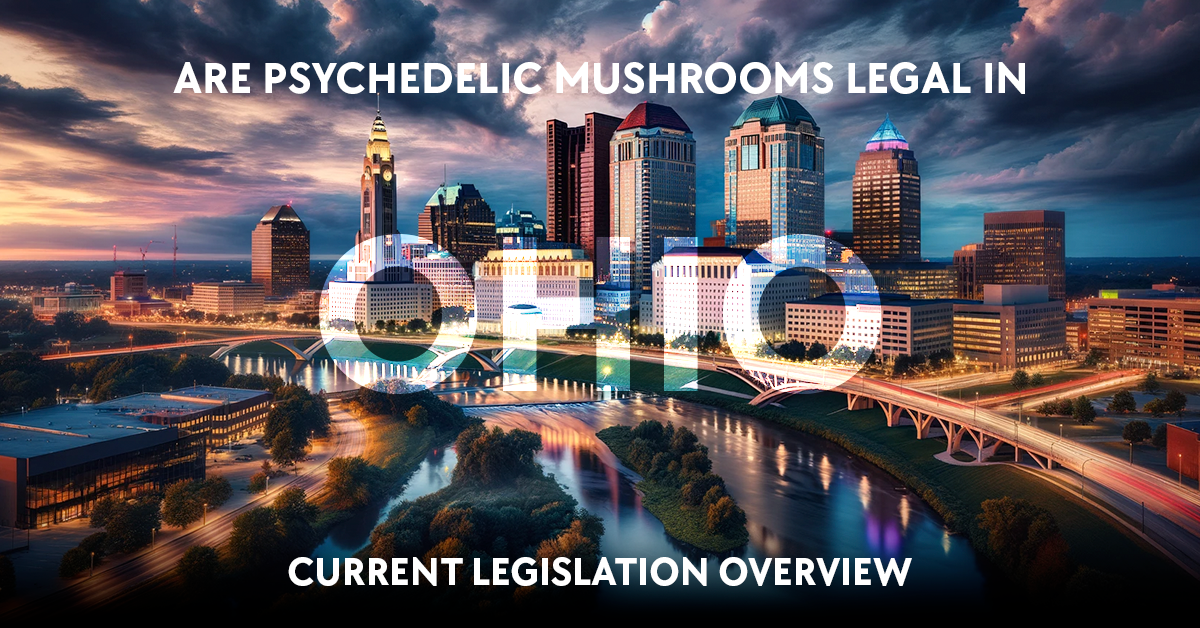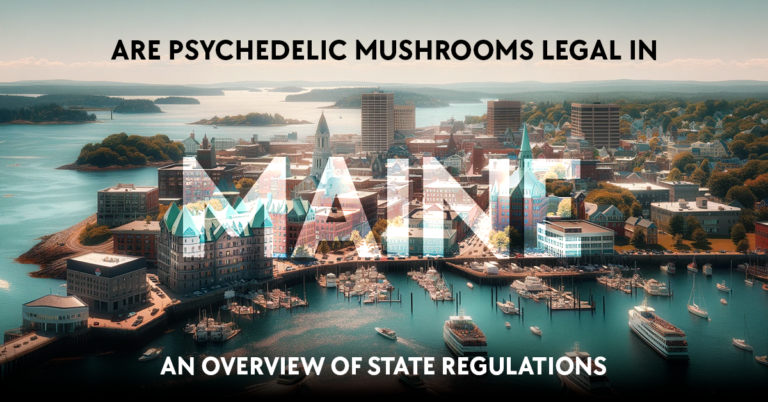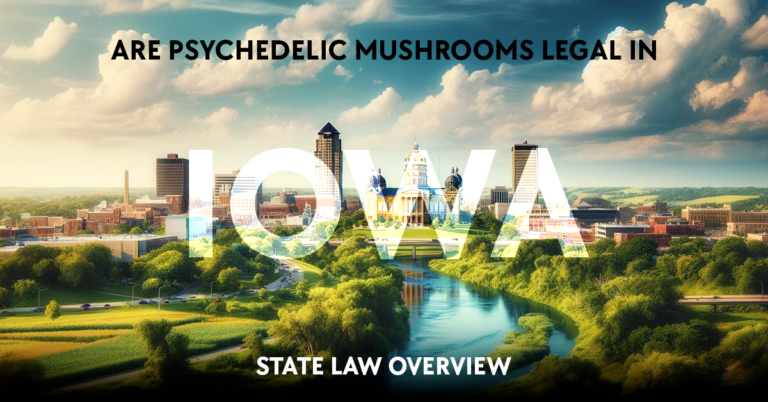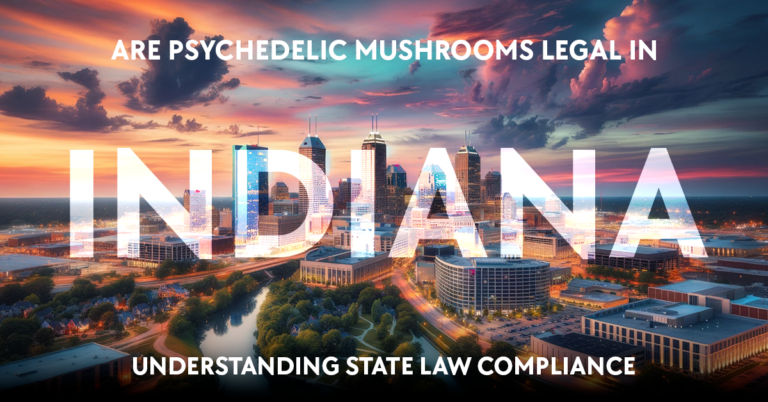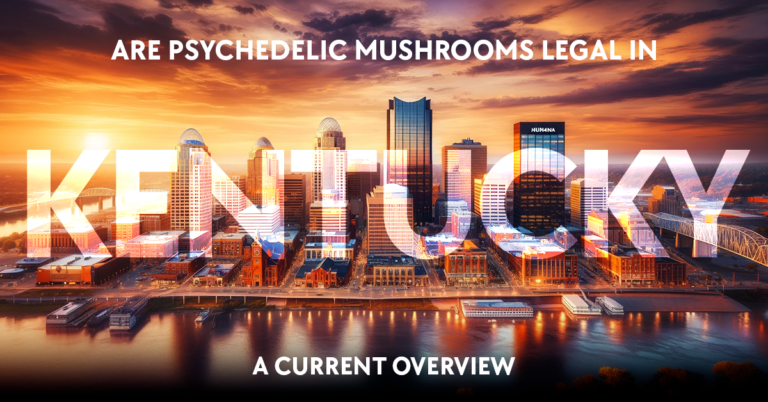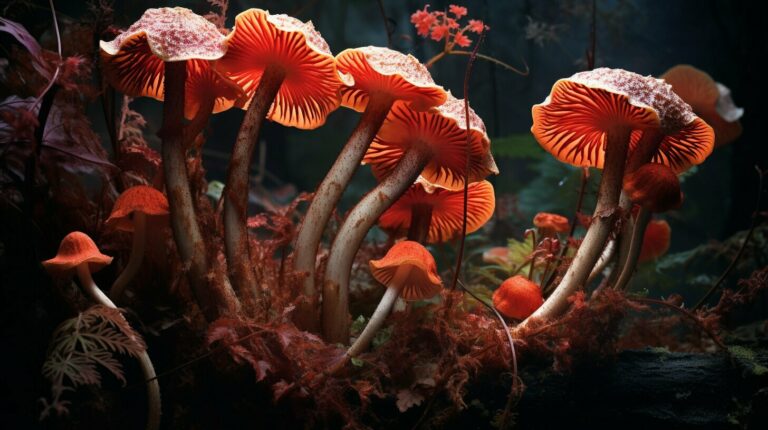Psychedelic mushrooms, also known as magic mushrooms, contain psilocybin, which is a naturally occurring psychoactive compound. In Ohio, as in the rest of the United States, psilocybin is classified as a Schedule I controlled substance under federal law, which implies that it is illegal to manufacture, distribute, or possess psychedelic mushrooms. The implications of this classification are clear: engaging with magic mushrooms, for any use, without strict authorization for research, can have serious legal consequences.
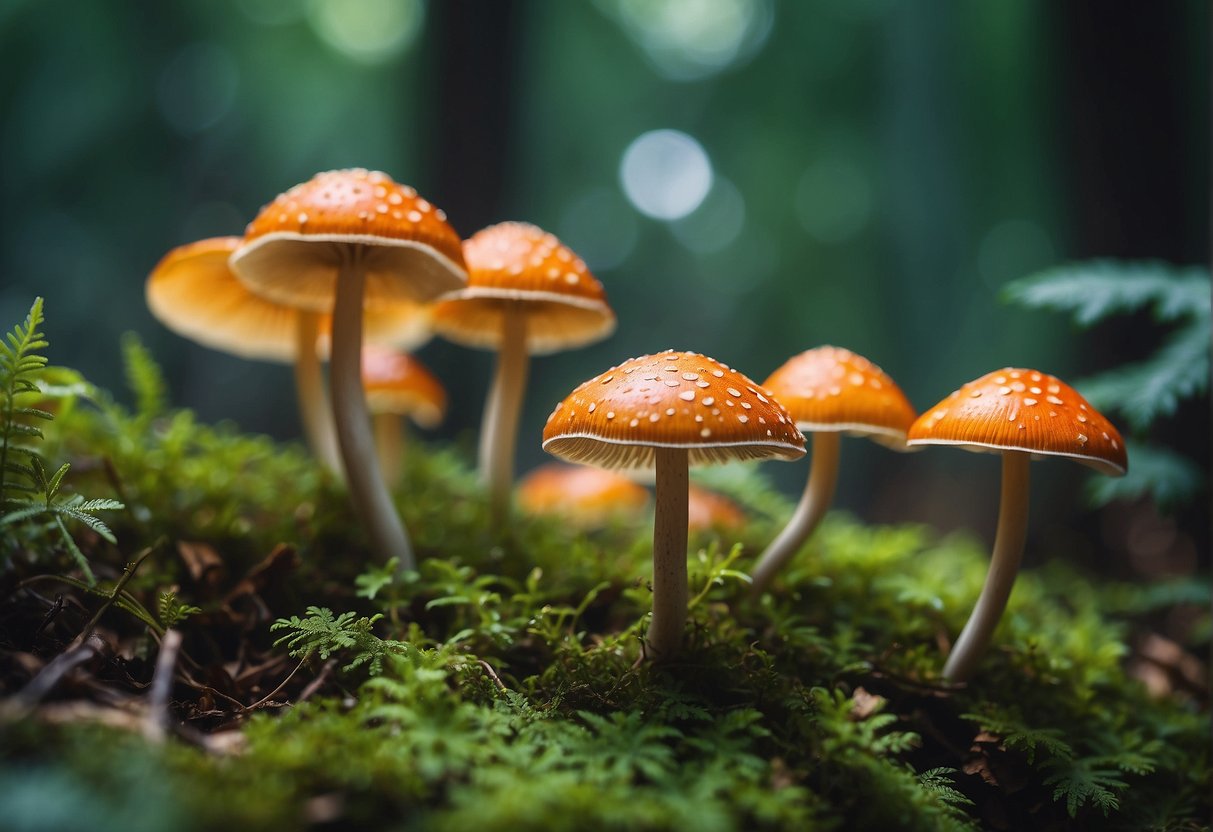
However, there has been a movement towards reevaluating the legal status of these substances in some parts of the country, driven by emerging research that suggests potential medical and therapeutic benefits. Despite this shifting landscape, Ohio has not yet changed its stance on the legality of psychedelic mushrooms; they remain illegal for recreational and therapeutic use alike. It’s crucial for you to understand state law in this area, as Ohio does not recognize the decriminalization efforts that have taken place in other jurisdictions.
Legality of Psilocybin Mushrooms in Ohio
Table of Contents
https://www.youtube.com/watch?v=RYyGnryzf5Q&embed=true
Exploring the legal landscape of psilocybin mushrooms in Ohio reveals a clear, stringent stance against their use and distribution. Understanding these regulations, their historical development, and context can provide you with a comprehensive view of where Ohio stands in relation to other states.
Current Laws and Regulations
In Ohio, psilocybin mushrooms are classified as a Schedule I controlled substance. This classification indicates that psilocybin is considered to have a high potential for abuse with no accepted medical use. The legal status in Ohio is one of prohibition; possession of these mushrooms is a felony offense. Penalties for possession or sale can be severe, including significant fines and imprisonment.
Historical Context and Changes
Since 2021, there have been no substantial changes or moves towards decriminalization or legalization within Ohio. Unlike some states that have begun to decriminalize or legalize psilocybin for medical or therapeutic use, Ohio has maintained strict opposition. Historically, efforts to relax laws on psychedelics have not gained significant traction in the state legislature.
Comparison to Other States
When comparing Ohio to states like Oregon and Colorado, both of which have legalized or decriminalized the use of psilocybin in some form, Ohio’s stance is markedly strict. This contrast highlights a growing divide in the United States between states adopting progressive drug policy reforms and those maintaining stringent criminalization. Other states like Maine, California, Michigan, and Washington have also moved towards a more lenient approach, primarily at municipal levels in cities such as Oakland and Santa Cruz.
Legal Implications of Psilocybin Spores
Interestingly, the legal status of psilocybin spores falls into a grey area in Ohio. While the spores do not contain psilocybin themselves and are thus not regulated under the Controlled Substances Act, cultivation or germination of these spores into mushrooms would be illegal. The sale of spores is often tolerated provided they are not intended for cultivation, but this tolerance does not equate to legal approval.
Medical and Therapeutic Research
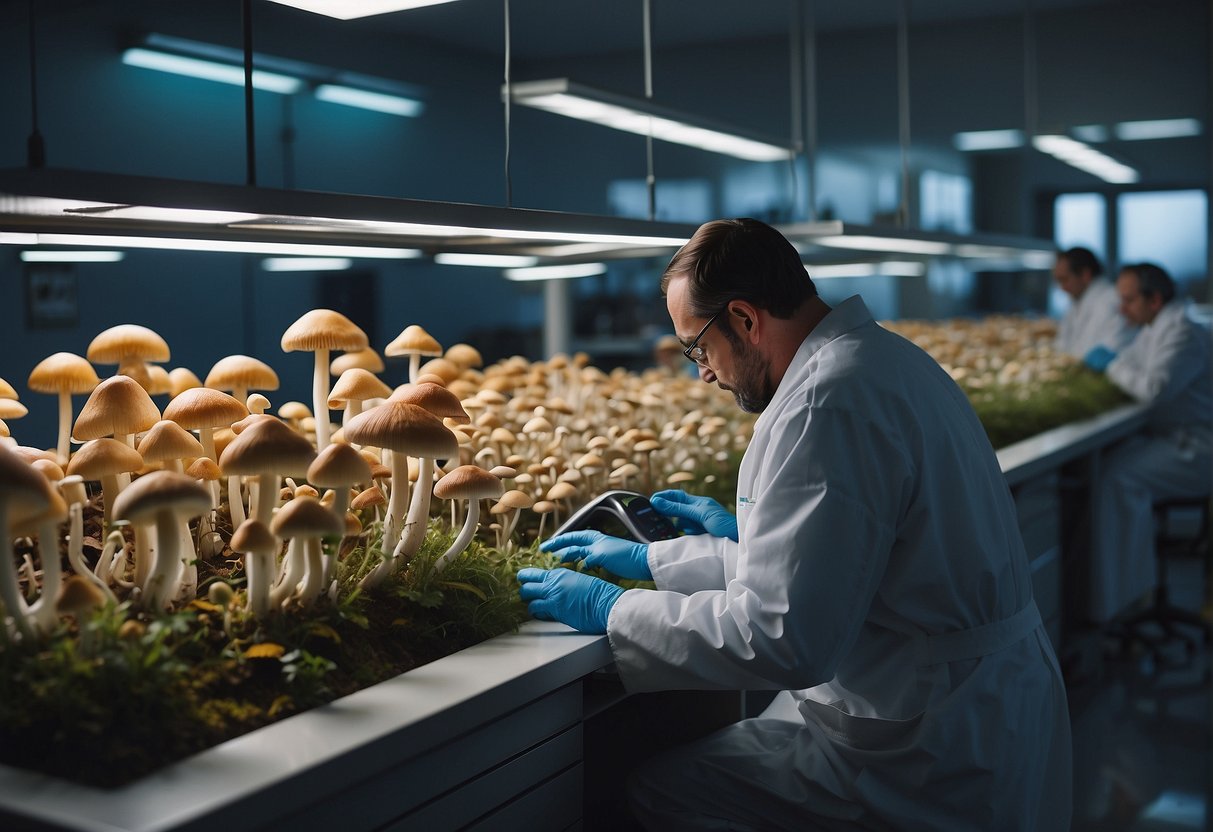
Exploring the legal landscape of psychedelic mushrooms in Ohio, we delve into the intricate world of medical and therapeutic research. This is highlighted by current clinical trials, DEA and FDA regulatory statuses, mental health benefits, academic perspectives, and the prospects of synthetic alternatives.
Current Clinical Trials and Studies
Your insight into psychedelic medicine begins with clinical trials. In Ohio, these scientific studies are examining psilocybin, the psychoactive compound found in psychedelic mushrooms, as a potential treatment for various conditions including depression, PTSD, anxiety, and addiction. The Ohio State University has researchers like Jason Slot who are looking at the genomics and metabolomics, which may contribute to our understanding of the chemical diversity in psychedelic mushrooms.
Psilocybin’s Status with the DEA and FDA
Under the U.S. Drug Enforcement Administration, psilocybin is currently classified as a Schedule I controlled substance. This indicates that although it possesses potential for abuse, it does not have current federal government-accepted medical use. Nevertheless, the FDA has granted Breakthrough Therapy designation to psilocybin, which acknowledges its potential medicinal benefits and could lead to accelerated development and review for certain conditions.
Potential Benefits for Mental Health
Research suggests that psilocybin could offer multi-dimensional healing properties for mental health issues. Controlled clinical trials have been looking into its efficacy to provide lasting relief from depression, anxiety, addiction, and PTSD, thus potentially enhancing the overall quality of life for individuals struggling with these ailments.
University Research and Academic Perspectives
Academic institutions such as Ohio State University are at the forefront of psychedelic studies, with experts like Jason Slot combining cutting-edge techniques in genomics and metabolomics to better understand the potential therapeutic benefits of psychoactive compounds found in psychedelic mushrooms. Universities provide an essential platform for scientific research fostering a deeper comprehension of psychedelics’ role in psychotherapy.
Synthetic Alternatives and Future Research Directions
As research progresses, companies like Inner State Inc. are working on synthetic alternatives to natural psilocybin, hoping to eliminate variables in potency and composition. This is considered a major milestone in the entire field of psychedelic research, offering a potential route for medicinal use that complies with strict DEA regulations. The future of psychedelic research in Ohio is likely to witness novel applications of these substances, exploring broader horizons in treatment options.
Public Perceptions and Societal Impact
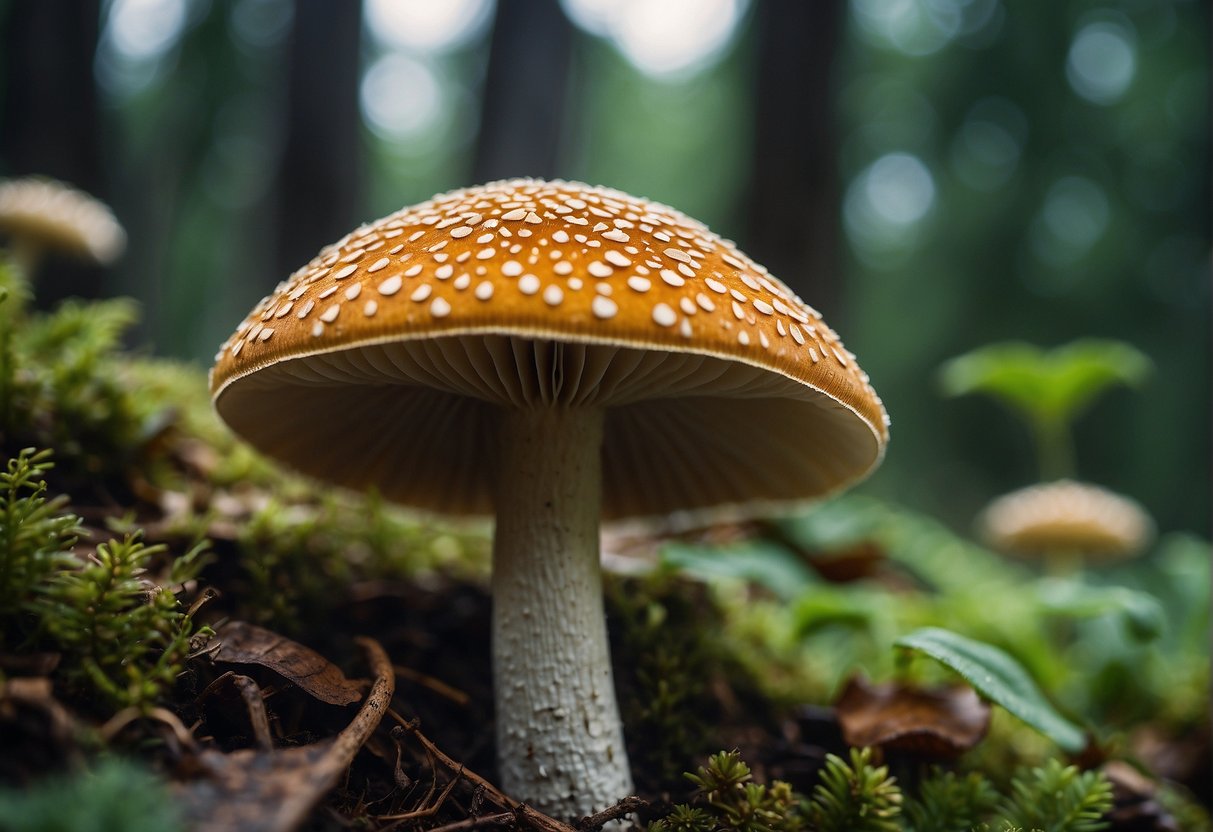
Your understanding of the perceptions and impacts surrounding psychedelic mushrooms, especially in regard to legality and societal attitudes, is crucial. This section will cover how they are viewed in popular culture, the movements propelling potential policy changes, and their influence on mental health dialogue and stigma.
Perception of Psychedelics in Popular Culture
Psychedelic mushrooms, often known as magic mushrooms, have woven their way into popular culture, with a mixed reception that straddles curiosity and controversy. In media, psychedelics are depicted in a variety of ways, ranging from transformative substances that expand consciousness to drugs associated with counterculture and escapism. The portrayals often reflect an ongoing public debate about the possible therapeutic benefits as well as the hazards.
Advocacy and Activism for Policy Change
Activist groups are tirelessly working to decriminalize psychedelic mushrooms, drawing parallels to the successful decriminalization and legalization of medical cannabis. Their efforts are buoyed by research suggesting that psychedelics may offer significant therapeutic benefits for a range of mental health issues, including depression, anxiety, addiction, and PTSD. The push for change is most notably seen in Oregon, where a historic measure to decriminalize psychedelic mushrooms for medicinal use passed, signaling a potential shift in public policy.
Effects on Mental Health Advocacy and Stigma
Magic mushrooms have found a place in discussions on alternative treatment options for mental health, with some studies supporting their therapeutic benefits when combined with psychotherapy. This conversation is influencing public opinion by framing psychedelics not solely as recreational drugs but also as potential tools for healing. It’s also changing the dialogue around mental health, lessening the stigma, and suggesting a connection between psychedelics and improved mental health outcomes.
Legal Considerations for Consumers
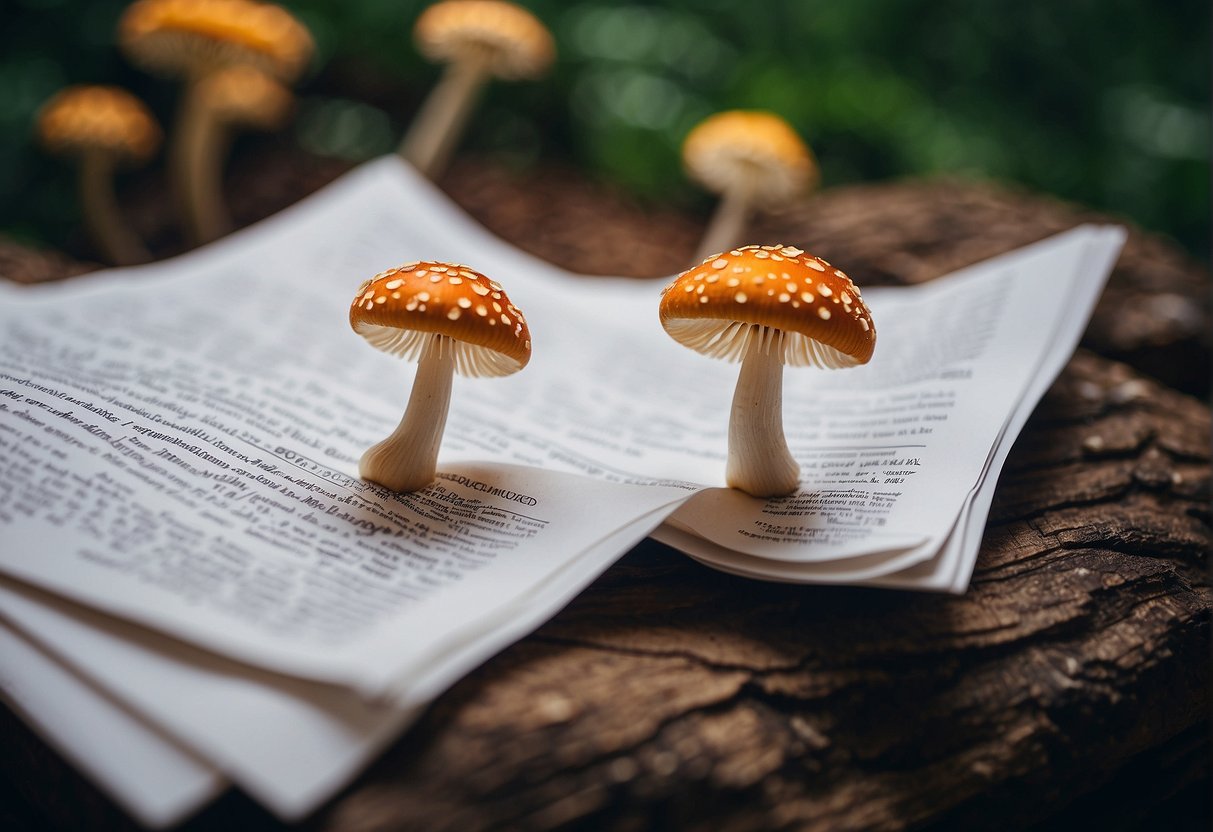
As you navigate the complex landscape of psychedelic mushroom use in Ohio, it is imperative to understand the legal implications. Knowing the laws regarding possession and the associated risks is essential for making informed decisions.
Understanding Possession and Distribution Laws
In Ohio, psychedelic mushrooms, which contain the psychoactive substance psilocybin, are classified as Schedule I controlled substances. Possession of these psychedelics is illegal and can result in criminal charges. Being found with psychedelic mushrooms may lead to a felony charge, with penalties escalating based on the amount in your possession. The legal status in Ohio does not permit the sale or distribution of psychedelic mushrooms, and engaging in these activities could lead to severe legal consequences, including prison time and hefty fines.
- Possession: Illegal in Ohio, may result in felony charges
- Sale: Distribution or sale is prohibited, high-risk felony with severe penalties
Risks and Safety Concerns
Beyond the legal risks, the consumption of psychedelic mushrooms poses safety concerns. While some mushrooms like psilocybin are sought after for their hallucinogenic effects, others, such as Amanita muscaria, can be toxic. It is critical to be cautious, as the misidentification of these fungi can lead to dangerous health risks. Furthermore, while the conversation around the medical use of psychedelics is growing, Ohio law currently criminalizes their use outside of approved medical research settings.
- Psychedelics: Can be toxic if misidentified, use caution
- Medical Use: Not recognized in Ohio, use is criminally charged
Global Perspectives and International Laws
Understanding global perspectives and international laws surrounding psychedelics is crucial if you wish to grasp the complexities of their legal status worldwide, and how this shapes laws. The following subsections delve into the specifics of global drug policy and its impact on legislation in the United States, particularly focusing on substances such as LSD, MDMA, ketamine, and psychedelic mushrooms like psilocybin.
Status of Psychedelics in Various Countries
- Netherlands: Legal truffle forms of psilocybin, controlled MDMA use in therapy.
- Portugal: Decriminalized possession and consumption of all drugs, including psychedelics, for personal use.
- Brazil: Ayahuasca is legal for religious use, while other psychedelics remain controlled.
- Canada: Restricted use of psilocybin for end-of-life anxiety.
Comparative Analysis of US Vs. Global Policy
- Personal Use: US policy leans towards criminalization, while some countries opt for decriminalization.
- Medical Research: The US is advancing in controlled psychedelic research, paralleling global scientific efforts.
Impact of Global Research on US Policy
Global research, indicating potential therapeutic uses of psychedelics, influences more open regulatory approaches in the US, such as ketamine clinics for depression and MDMA-assisted therapy for PTSD.
World Health Organization and Drug Scheduling
The World Health Organization (WHO) plays a key role in international drug scheduling, which indirectly affects US policies. Substances like LSD and MDMA are closely monitored under WHO guidelines.
Ethical and Philosophical Considerations
When discussing the legal status of psychedelic mushrooms in Ohio, it’s important to consider not only the current law but also the ethical and philosophical perspectives that influence debates on this matter.
The Morality of Psychedelic Use and Criminalization
Psychedelic mushrooms, like psilocybin, often provoke deep ethical discussions about their use and criminalization. Your understanding of morality shapes how you view the legality of these substances. Ethical arguments typically focus on personal autonomy—your right to make decisions about your own body and mind—and the potential therapeutic benefits versus the risks of abuse and societal harm. Some argue that criminalization infringes on individual liberties, asserting that informed adults should have the right to explore their consciousness without fear of legal repercussions.
Conversely, there’s a stance that maintaining the illegal status of psychedelics, including psychedelic mushrooms, helps protect public health and safety. This perspective is rooted in concerns about the potential for misuse and the unpredictable effects these substances can have on individuals and, by extension, on society.
The Future of Psychedelics in Medicine and Society
As you look to the future, consider how psychedelics might be integrated into medicine and society. The advancement in psychedelic-assisted psychotherapy reflects a shift in societal attitudes, with increasing interest in examining the potential benefits of these substances under medical supervision. As research continues, the possibility of using psychedelic mushrooms as tools for mental health treatment is explored, especially for conditions refractory to conventional treatments.
The conversation around psychedelics often involves weighing the potential for recreational use against their application in psychotherapy. As acceptance grows, you might wonder if and how legal frameworks will adapt. Will the benefits in medical contexts influence laws around recreational use, or will psychedelic mushrooms remain under strict prohibition? Balancing the promise of medical advances with concerns about widespread recreational use is a key challenge that society will face in shaping future policy.
Regulatory Pathways for Legal Change
In Ohio, the discussion around the legal status of psychedelic mushrooms is part of a larger national conversation. Your understanding of how this unfolds legally is crucial as various pathways guide changes in state and federal drug policies.
Steps Towards Decriminalization and Legalization
Decriminalization generally refers to the reduction or removal of criminal penalties associated with personal possession and use of substances such as psychedelic mushrooms. Ohio activists and policymakers may initiate decriminalization by proposing state-level ballot measures or legislation. This is often the first move towards broader legalization efforts which aim to establish a regulated system for the cultivation, distribution, and use of psychedelics.
In other parts of the U.S., medical cannabis legalization set a precedent, where voter-driven initiatives led to legislative change, laying down a possible template for psychedelics. Legalization, however, goes beyond decriminalization by permitting specific activities under law. For instance, Oregon has moved toward creating a licensed system for psilocybin services.
State Vs. Federal Jurisdiction in Drug Policy
The United States operates under a dual legal system, which means both state laws and federal laws apply. While a state like Ohio might move to decriminalize or legalize psychedelic substances, these substances often remain illegal under federal law, governed by the U.S. Drug Enforcement Administration (DEA).
Conflicts between state and federal jurisdiction arise, as seen in the case of medical cannabis, where states have passed laws that contradict federal restrictions. For psychedelics to gain legal status in Ohio, state legislation would need to address how it intersects with current federal statutes, considering potential protections for users under state law.
Role of Medical and Scientific Community in Shaping Laws
The medical and scientific community plays a pivotal role in influencing public policy on psychedelics. Their research can provide evidence for the therapeutic benefits of substances like LSD, MDMA, ketamine, and ayahuasca.
In Ohio, if studies support the medical use of psychedelics, such as the utilization of psilocybin mushroom spores for treating depression, this can be a persuasive factor in policy change. Extensive medical research often serves as a cornerstone in debates on legal reform, with the potential to shift societal and legislative perspectives towards a more receptive stance on psychedelics.
Frequently Asked Questions
In this section, you’ll find clear, authoritative answers to common questions about the legality of psychedelic mushrooms in Ohio.
What are the current laws governing the use of psilocybin mushrooms in Ohio?
In Ohio, psilocybin mushrooms are categorized as Schedule I substances under the Controlled Substances Act, making their use and possession illegal. You can review the legislation for a detailed understanding of the restrictions.
Has there been any recent legislation in Ohio regarding the decriminalization of psychedelic mushrooms?
To date, there has been no successful legislation in Ohio that decriminalizes psychedelic mushrooms. However, efforts at decriminalization have been seen in other states which may influence future legislation in Ohio.
Are there any medicinal or therapeutic uses of psilocybin that are legally sanctioned in Ohio?
Currently, Ohio law does not recognize any medicinal or therapeutic use for psilocybin, and therefore, its use remains illegal within the state’s borders.
Can individuals grow psilocybin-containing mushrooms at home legally in Ohio?
The cultivation of psilocybin-containing mushrooms at home is illegal in Ohio, as it falls under the production of a Schedule I controlled substance.
What are the potential legal consequences of possessing psychedelic mushrooms in Ohio?
Possession of psychedelic mushrooms in Ohio is a serious offense that can lead to penalties including fines and incarceration. The exact consequences depend on the quantity in possession and the context of the offense.
Is there ongoing research or clinical trials involving psilocybin that are sanctioned by the state of Ohio?
While there’s a growing interest in psilocybin for its potential therapeutic benefit, any sanctioned research or clinical trials in Ohio would have to comply strictly with federal regulations governing Schedule I substances.

